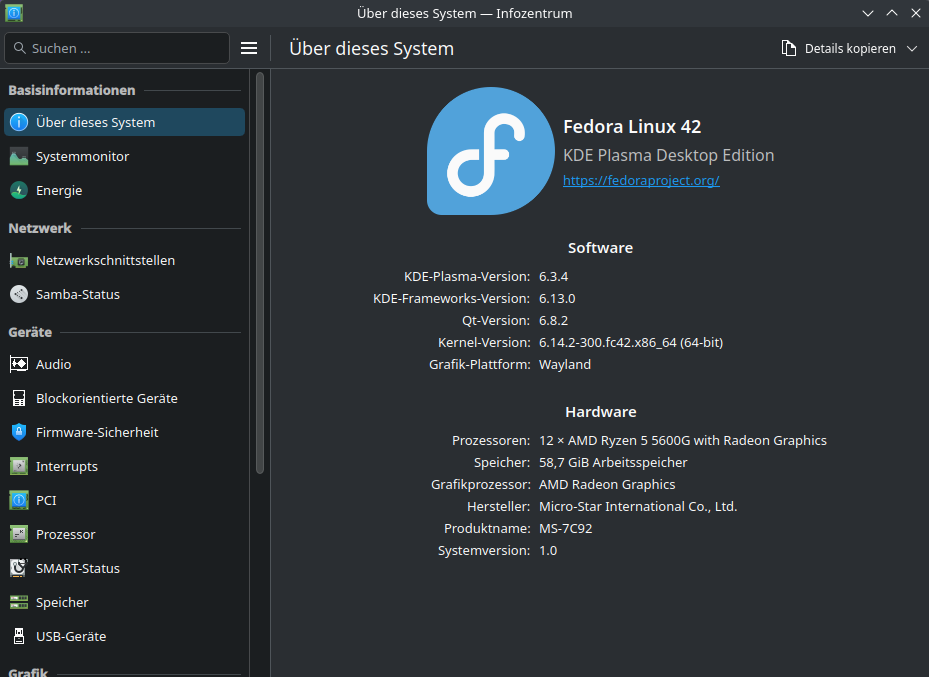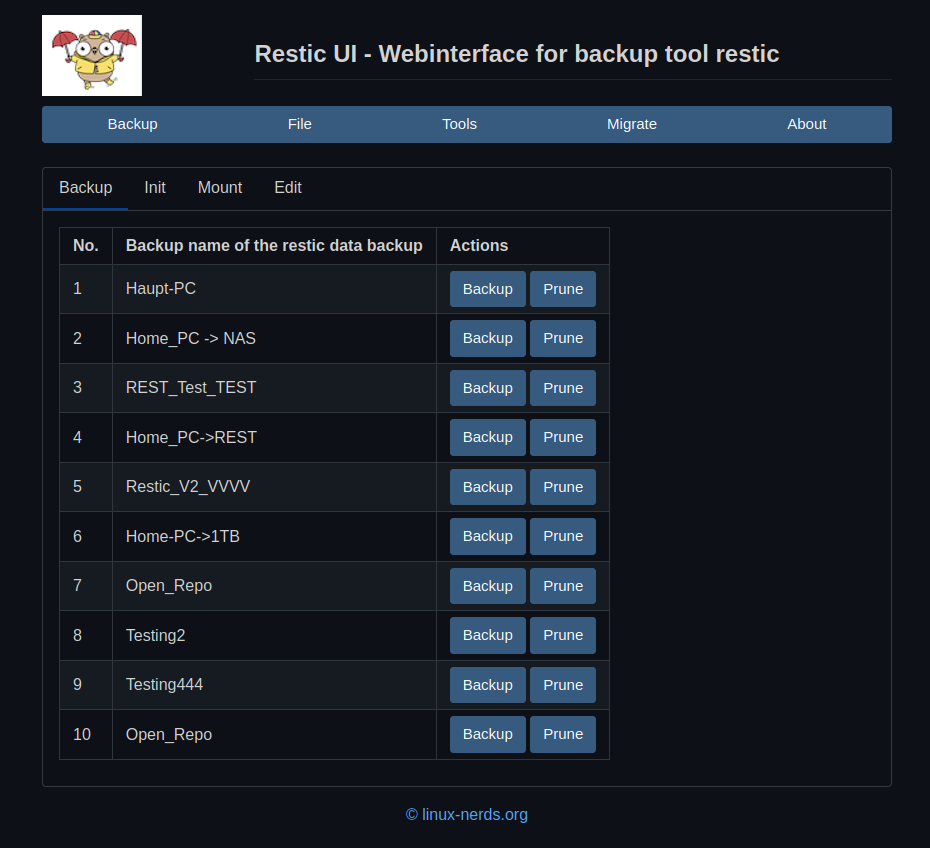- Details
- Geschrieben von Frank Mankel
- Kategorie: Linux
Meinen ersten Versuch findet man hier. Mittlerweile habe ich das Setup verfeinert und bin zufrieden. Das wollte ich hier teilen.
Der Plan ist es einen Forgejo Server aufzusetzen. Die Dienste sollen alle als Podman Container laufen. Die Podman Installation soll auf Quadlet basieren.
Ich brauche also einen Forgejo Pod mit folgenden Containern
- Forgejo
- Postgres
- Nginx
Das ganze soll auf Quadlet basieren. Was ist das?
Quadlet is a tool for running Podman containers under systemd in an optimal way by allowing containers to run under systemd in a declarative way. It has been merged into Podman 4.4.
Ok, wenn wir schon dran sind, was ist Podman ?
Podman (kurz für POD-Manager) ist ein Open Source-Tool, mit dem Sie Container entwickeln, managen und ausführen können. Das Tool wurde von Red Hat Engineers in Zusammenarbeit mit der Open Source Community entwickelt, und es verwaltet das gesamte Container-IT-Ökosystem mithilfe der libpod-Library.
Engineers in Zusammenarbeit mit der Open Source Community entwickelt, und es verwaltet das gesamte Container-IT-Ökosystem mithilfe der libpod-Library.
Installation Server
Ich nutze eine VM von Hetzner . Darauf läuft ein Debian 13 "Trixie". Also, die nächste Version die kommt.
deb http://deb.debian.org/debian trixie main contrib non-free-firmware
# deb-src http://deb.debian.org/debian bookworm main contrib non-free-firmware
deb http://deb.debian.org/debian trixie-updates main contrib non-free-firmware
# deb-src http://deb.debian.org/debian bookworm-updates main contrib non-free-firmware
# deb http://deb.debian.org/debian bookworm-backports main contrib non-free-firmware
# deb-src http://deb.debian.org/debian bookworm-backports main contrib non-free-firmware
deb http://security.debian.org/debian-security trixie-security main contrib non-free-firmware
# deb-src http://security.debian.org/debian-security bookworm-security main contrib non-free-firmware
Warum Trixie? Mein Profi Berater meint, die uralte Podman Version sollte man nicht mehr benutzen, man braucht etwas Frisches 
root@forgejo:/etc/apt# podman -v
podman version 5.3.2
- Details
- Geschrieben von Frank Mankel
- Kategorie: Linux
Ich habe ja gelegentlich Fedora getestet, zuletzt etwas ausführlicher Fedora 40. Jetzt wird ja aktuell, durch den Release von Fedora 42 , überall darüber berichtet. Schauen wir mal, was daran gut ist. Ich halte mich ein wenig an den Fedora 40 Test, falls jemand nicht sofort versteht worum es geht.
Da ich kein Gnome nutze, habe ich mich gefreut, das KDE jetzt den Status Edition hat.
We’ve promoted our KDE Plasma Desktop offering to “Edition” status.
Dann habe ich mich auf ein neues Installations Interface gefreut.
Perhaps most excitingly, we have a new installation interface!
Da wurde ich aber total enttäuscht. Den neuen Installer bekommt man wohl nur mit Gnome!? Warum!????? Der Installer machte aber seinen Job und ich hatte kurz danach eine Fedora 42 Installation.
Bitte beachten, alle meine Tests mache ich auf echter Hardware.

Den kompletten Beitrag gibt es im Forum
- Details
- Geschrieben von Frank Mankel
- Kategorie: Linux
Prologue
What is it about? There is a company that develops and distributes a password safe - Bitwarden. Bitwarden is a central server that stores an encrypted database of logins. This database can then be accessed with numerous clients. If the server is hacked, this data is still sufficiently secure because it is encrypted! If you trust the provider 
The software is open source and the source code can be viewed on Github etc. This is what Bitwarden writes about itself.
Bitwarden is an open source password manager. The source code for Bitwarden is hosted on GitHub and everyone is free to review, audit, and contribute to the Bitwarden codebase.
We believe that being open source is one of the most important features of Bitwarden. Source code transparency is an absolute requirement for security solutions like Bitwarden.
Every company wants to earn money, so they also offer a service to create and use the password safe directly on their servers. For security reasons, no problem, as all data is stored in encrypted form. The prices are perfectly fine and for a single account you can also use it for free. But, as my trend is away from such things, it has to be a solution that you run yourself. Yes, for the cost-conscious user, not the best solution, but control costs something. As a small suggestion, what do you do if the NSA pulls the plug on Bitwarden? Very unlikely, but I can still remember a tool that no longer exists.
How do you come up with an idea like that? Well, that's what happens when you talk to professionals about all kinds of things in the computer world and they point it out to you. Thanks Nico! And since I'm always curious, I try out a lot.
And now let's put this into practice…
You can find the complete article in my forum -> https://linux-nerds.org/topic/1506/install-vaultwarden-deb-package-on-debian-bookworm-12-server
- Details
- Geschrieben von Frank Mankel
- Kategorie: Linux
Mein Debian Server mit einer Nextcloud-Installation läuft noch auf Debian Bullseye 11. Das möchte ich gerne ändern, wie ich aber letzte Woche lernen musste, ist das gar nicht so einfach. Ich war kläglich gescheitert. Warum?

Auf dem Bild sieht man das erste Problem. Die Nextcloud (NC) Version Nextcloud Hub 3 (25.0.8) lässt sich nicht auf eine höhere Version upgraden wegen der PHP Version. Man müsste als erstes auf eine PHP Version > 8
Wenn man jetzt so schlau ist wie ich, schraubt man den Debian Server auf Debian Bookworm 12 hoch. Dort ist ja PHP 8.2 enthalten. Man kann aber jetzt nicht die NC Installation upgraden.
Ok, eine recht doofe Situation. Man könnte warten, wenn die Version EOL ist sollte es funktionieren. Voraussichtlich Ende des Jahres (?). Ja aber, man kann ja so schlecht warten.... diese Ungeduld
Ok, ich hatte gelesen, wenn man auf Debian 11 ist, soll man die PHP Version auf 8.1 hochziehen. NC upgraden. Wenn das erledigt ist auf Bookworm 12 hochziehen. Danach sollte man dann wieder aktuell sein.
Auf gehts
Wir brauchen mehrere PHP Versionen auf dem Debian 11 Server. Der Maintainer der PHP Debian Packages hat da eine Webseite
Die ganze Geschichte findet ihr hier
- Details
- Geschrieben von Frank Mankel
- Kategorie: Linux
Ich bastel ja schon etwas länger an verschiedenen Benutzeroberfläche für das Backup-Tool Restic.
Erstes Projekt war -> https://gitlab.com/Bullet64/restic-ui-public - gebaut mit Python & PyQt6
Zweites Projekt -> https://gitlab.com/Bullet64/restic_ui_pywebio - gebaut mit Python & PyWebIO

Hier ein kleines Video, wie das so aktuell aussieht.
Mehr dazu, dann in meinem Forum.